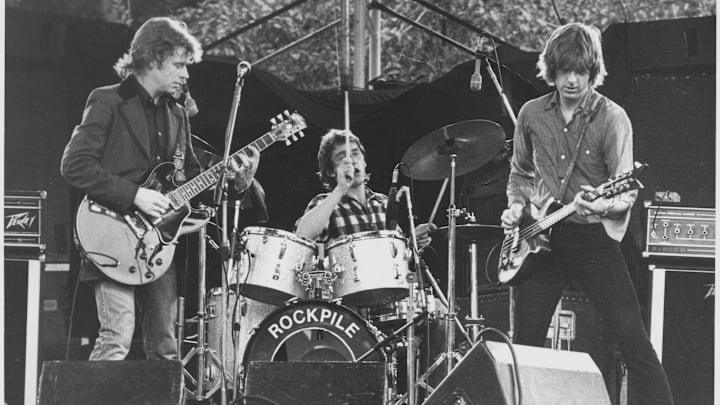The first number-one song of the 1970s was “Raindrops Keep Fallin’ on My Head,” a catchy little pop song from the pen of Burt Bachrach and Hal David that got additional acclaim from appearing the in the hit movie Butch Cassidy and the Sundance Kid. The last song to reach the top spot in 1979 was Rupert Holmes’ “Escape,” more commonly known as “The Pina Colada Song.” It is the ideal number to put on your stereo when your guests have stayed too long at the party and you need them to leave.
Between those two poles, there were highs and lows. The early-decade dance funk of the Jackson 5 and Sly and the Family Stone gave way to the disco of the Bee Gees and Donna Summer by 1979. Indeed, disco came to dominate the second half of the decade, following the standard trajectory of any hit genre, albeit absurdly sped up. It began as something hot and new, and within a few years had oversaturated the market to such a degree that it became the butt of jokes. When John Travolta donned his white suit, disco hit its pinnacle. It was all downhill from there.
It was also a decade of loss. It began with the end of the Beatles, and it ended with the similar demise of Led Zeppelin (not to mention John Lennon.) During the rather tumultuous ten-year period, innovators like Jimmi Hendrix, Janis Joplin, Jim Morrison, Duane Allman, and Marc Bolan all passed away before reaching the age of 30. Keith Moon, Lowell George, Cass Elliot, Bobby Darin, and Jim Croce didn’t make it to 40. We lost Elvis – at least according to most reputable sources.
These 1970s bands gave up way too soon
Rock & Roll was changing. It had grown out of its fledgling days in the 1950s, through rebellious adolescence in the ‘60s, and now was attempting to become all grown-up. Like most grown-ups, it was struggling to retain its youthful identity.
As festivals gave way to arena rock, and the new titans like Journey and Kansas achieved a level of perfection that seemed lifeless to some listeners, bands were searching for ways to remain fresh and vital. New Wave, metal, punk, and hip-hop were all just around the corner, but it was hard to see them at the time. It was serious enough so that a few years into the following decade, Huey Lewis would have to remind everyone that “the heart of rock & roll is still beating.”
In our exploration of bands that ended too soon, the ‘70s hold a special place. They were all innovators. Some looked forward and others backward. Some of their members went on to do great things while others vanished. They all influenced what came next, and they all left us wondering and wanting. Wondering what they might have achieved had they stuck around. And wanting – well, just wanting more.
